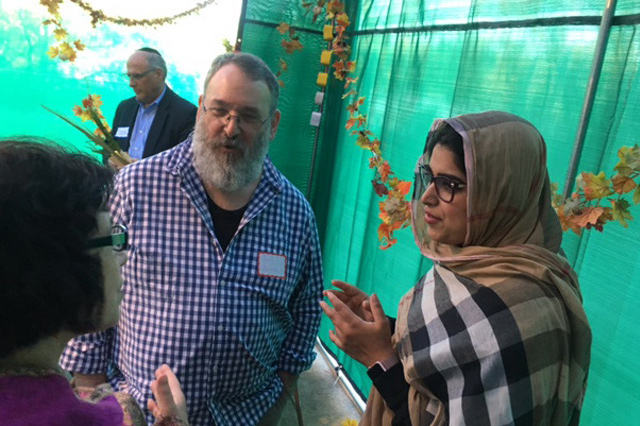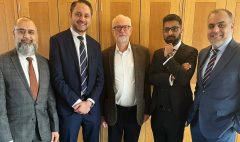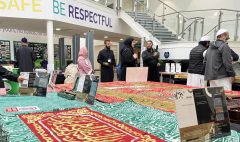Minnesota Muslim-Jew alliances multiply in new political climate
October 12, 2017 2024-03-18 15:20Minnesota Muslim-Jew alliances multiply in new political climate

Minnesota Muslim-Jew alliances multiply in new political climate
Rabbi Morris Allen celebrated the holiday of Sukkot last weekend at an unusual backyard gathering that hosted men wearing yarmulkes and Muslim women draped in headscarves. A few weeks earlier, a new organization of Muslim and Jewish women delivered food shelf donations to a Minneapolis school. Another alliance, the Sisterhood of Salaam Shalom, just launched a second Minnesota chapter in as many years.
Minnesota, long a leader in interfaith action, is emerging as a national leader in Jewish-Muslim relations. Thanks to groundwork laid by religious leaders over the years, and jolted by heightened anti-Muslim, anti-Semitic tensions, leaders of the two faiths are forging new alliances and bolstering existing ones.
“I talk to colleagues across the country and there is a lot going on in Muslim-Jewish relations,” said Imam Makram El-Amin, whose Masjid An-Nur mosque shares a long partnership with Temple Israel. “But in terms of sheer volume of engagement, the Twin Cities is among the national leaders — if not the leader. It’s so much so, that we have to pick and choose what we can be engaged in.”
Minnesota reflects a trend unfolding in urban centers across the country, as well as the nation’s capital. For example, the American Jewish Committee and the Islamic Society of North America — two of the nation’s largest such advocacy groups — launched a new lobbying organization last November to promote hate crime legislation, civil rights legislation and other shared policy concerns.
In Minnesota, it’s difficult to miss the shifting winds. When two Jewish Community Centers in the Twin Cities received bomb threats this year, Muslim leaders placed a half-page newspaper advertisement stressing solidarity with the Jewish community. When a Muslim mosque in Bloomington was bombed in August, Jewish leaders were among those swiftly condemning the act at a news conference and solidarity event.
Relationships are swelling wider and deeper, from official synagogue-mosque partnerships and an imam-rabbi round table to joint legislative alliances, social gatherings and private friendships.
“I’ve never been to a Seder, and this year I was invited to two,” said Nausheena Hussain, executive director of Reviving the Islamic Sisterhood for Empowerment, which has worked on gun-control policies with the local National Council of Jewish Women. Such alliances are setting aside differences over the Middle East to focus on common concerns such as civil rights violations, hate crimes and immigration.
During the past week, Jews have been celebrating the harvest holiday of Sukkot by building temporary huts in backyards that symbolize the makeshift dwellings of their ancestors during the exodus from Egypt. This year, those dwellings were welcoming dozens of Muslim visitors, as synagogues and individuals invited Muslims to learn about the tradition.
Source: Star Tribune








